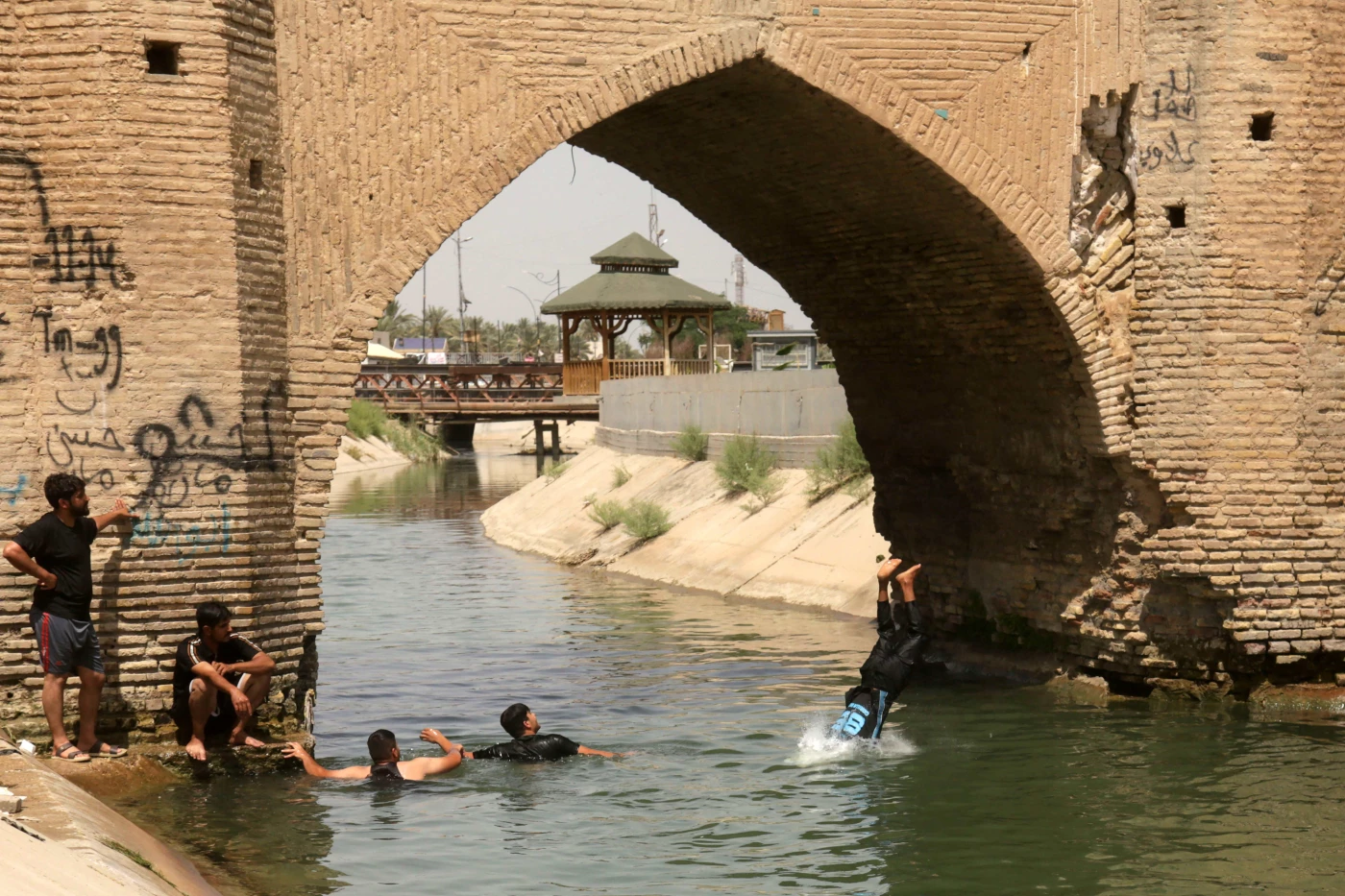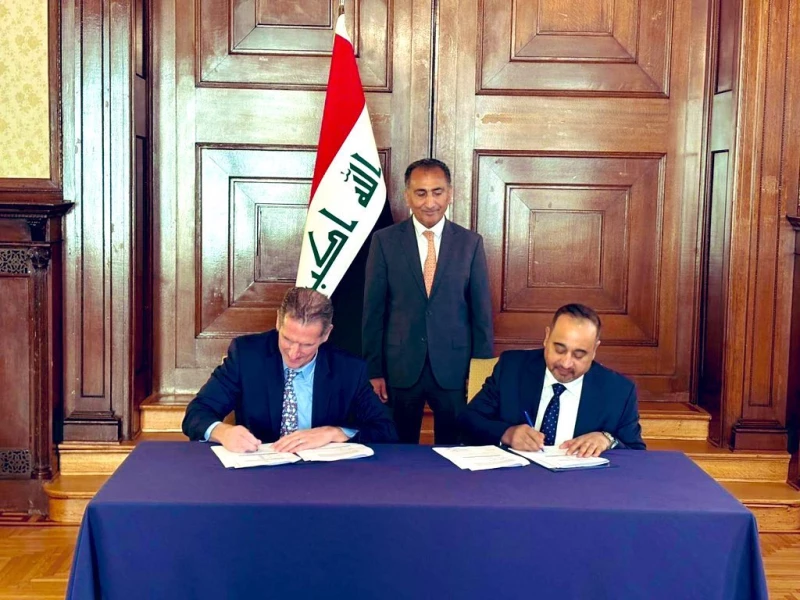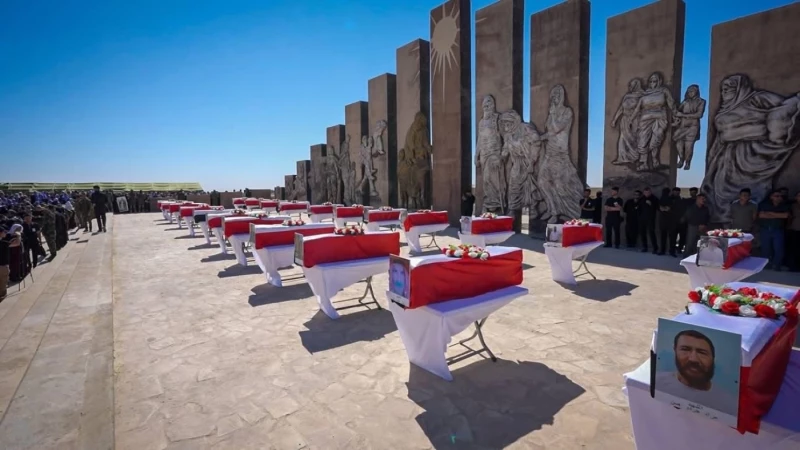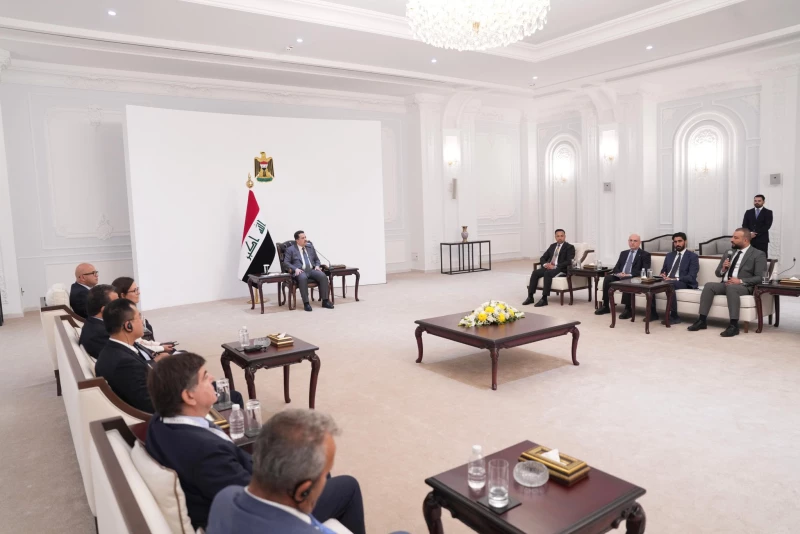DUBAI, UAE - Iraq and Turkey have agreed to release 500 cubic meters of water per second from the Euphrates River each day, Iraq’s Minister of Water Resources Aoun Diab Abdullah announced Saturday, as the country faces one of its worst water shortages in decades.
Speaking at a press conference reporter by Iraqi state media, Diab said joint committees with both Turkey and Iran are continuing to work on securing Iraq’s fair share of water. He also said Iraq is implementing terms of a water framework agreement with Turkey, which includes Turkish support for irrigation infrastructure and continued water releases.
Dhiab noted that Iraq currently does not need new dams, as existing ones have enough unused storage capacity, including 7 billion liters in Mosul Dam, 4 billion in Tharthar Dam, and 8 billion in Haditha Dam. He praised the ministry’s efforts to maintain water levels in the southern marshes despite the country’s severe drought and low rainfall.
The announcement came during the 5th Baghdad International Water Conference, where presidential advisor Mohammed Amin Faris said Iraq is wasting about 60 percent of its water resources due to outdated irrigation practices and poor management.
Held under the theme “Water and Technology: Partnership for Development,” the conference gathered international experts, companies, and government officials to address the growing crisis.
“This year, the government is facing a severe water shortage,” Faris told The New Region. “Water levels have not been this low in 80 years. We are seeing the lowest storage in our dams and reservoirs.”
Faris said new dams are being planned, mostly in the Kurdistan Region, and strategic studies are underway to secure funding. However, he noted that some political forces inside and outside the government are opposing these projects.
He also said efforts are ongoing to pass a national water law and to finalize agreements with neighboring countries on shared river flows. Iraq and Turkey have already agreed on a cooperation plan that allows Turkish companies to help build Iraqi-funded dams.
Faris warned that desertification is expanding, and millions of acres of farmland are suffering from drought, climate change, and extreme heat. Officials said about 27 million dunams (roughly 6.7 million acres) of agricultural land have been damaged.
Iraq is considered one of the five countries most affected by climate change globally.
Speaking to The New Region on Tuesday, Iraqi parliament member Hassan Wariush al-Asadi said Iraq’s current water storage has dropped to about 9 billion cubic meters, down sharply from 26 billion cubic meters at the same time last year.
“This situation has forced the ministry to cancel the summer agricultural plan entirely to save water for drinking and other essential needs,” Asadi said.
He warned that Iraq loses more than 2 billion cubic meters of water each year due to evaporation, while the country needs over 4.5 billion cubic meters just for drinking. If current levels continue, Iraq could run out of usable water in the coming months.
Water scarcity has been a long-standing and critical issue for Iraq, exacerbated by upstream dams constructed by Turkey along the Tigris and Euphrates rivers. These dams have significantly reduced water flow into Iraq, intensifying the country’s existing water shortages.


 Facebook
Facebook
 LinkedIn
LinkedIn
 Telegram
Telegram
 X
X



